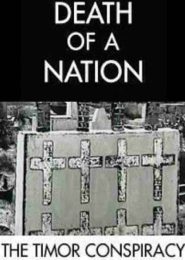The Battlespace of the Future (2021)
In the riveting documentary The Battlespace of the Future, the veil of secrecy is lifted, revealing a world where wars are waged in the shadows—beyond official borders, away from conventional battlefields. Directed by Michael Kirk, this thought-provoking film explores the emerging technologies and covert strategies that redefine the face of conflict.
Here are the key insights from this eye-opening documentary:
- Shadow Wars and Mercenaries:
- A shadow war is one that officially does not exist. As traditional armies step back, a new breed of warriors emerges: mercenaries, hackers, and drones. These unconventional forces blur the lines between war and peace.
- The film takes us into this clandestine realm, where digital weaponry and private military contractors execute attacks while their puppeteers remain hidden.
- The U.S. Military’s Evolution:
- Despite its formidable military might, the United States faced exhaustion in seemingly endless wars. While troops returned from Afghanistan, the U.S. military continued operating beyond official war zones.
- Special Forces now wield drones, hacks, and surveillance technologies to conduct targeted killings. The boundary between war and peace dissolves.
- Cyberspace Armament and Digital Mercenaries:
- The last decade witnessed the rise of cyber warfare. Hacking, often state-subsidized, thrives as a lucrative business. Digital mercenaries peddle spy software to authoritarian regimes.
- Criminal hackers, motivated by profit, attack any vulnerable target. Meanwhile, the classic mercenary business resurges, as states prefer not to risk their official armies in battle.
- Privatizing Warfare and Its Consequences:
- Former mercenary Sean McFate warns that a world dominated by mercenaries is a world dominated by war. Privatization of warfare creates an insatiable demand for conflict.
- The film underscores how states evade responsibility, driving the privatization of violence. The business of war thrives in the grey zone.
- The Human Cost and Ethical Dilemmas:
- Ordinary lives intersect with geopolitical calculations. Factory workers, diplomats, and soldiers navigate this treacherous landscape.
- As viewers, we confront ethical questions: How do we hold accountable those who operate in the shadows? What price do we pay for a world of mercenaries?
- A Call to Vigilance and Dialogue:
- The Battlespace of the Future leaves us with urgent queries. Can diplomacy prevail over conflict? How do we prevent a world perpetually at war?
- Our choices ripple through generations. The ghosts of diplomacy and the specter of conflict coexist. We must engage, understand, and demand accountability from our leaders.
This documentary serves as a reminder: The future of warfare lies not only in tanks and missiles but also in lines of code, private contracts, and hidden agendas. As we peer into the shadows, we become witnesses to a world where battles unfold silently, yet their impact reverberates across time.
The Battlespace of the Future beckons us to shape our destiny—one where dialogue prevails over destruction, and the specter of war retreats into the annals of history.




